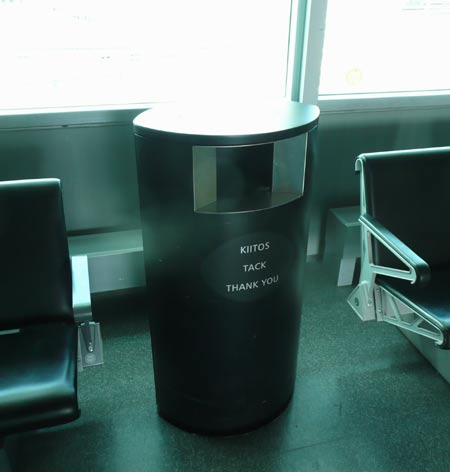
It cost nothing to put this (trilingual) thank-you message on this litter bin at Helsinki Airport. But does this kind of message – a very simple injunctive norm – have more effect on user behaviour than the absence of a message? To what extent does it make you more likely to use the bin? To what extent is a message of appreciation affective?
See also [both PDFs] ‘Crafting Normative Messages to Protect the Environment’, an extremely interesting paper by Robert Cialdini, and ‘Persuasive Trash Cans’ [EDIT: Thanks to Ian Mason for the non-paywall link] by Eindhoven’s Yvonne de Kort, Teddy McCalley and Cees Midden, which reviews this field and then compares the effectiveness of different kinds of messages. This quote is worth noting:
The focus theory of normative conduct… posits that norms affect human behavior systematically and significantly but only in situations where the norm is salient (focal) for the individual. In other words, this theory suggests that individuals may well have internalized an antilittering norm, but without activation through attention-focus procedures, it will not necessarily guide behavior in a prosocial direction.
Pingback: Design with Intent | Thoughts on the ‘fun theory’